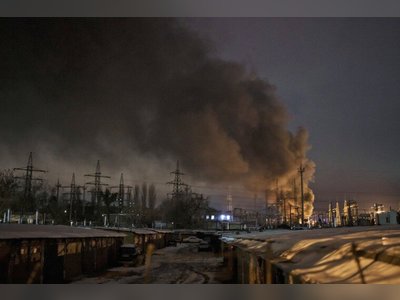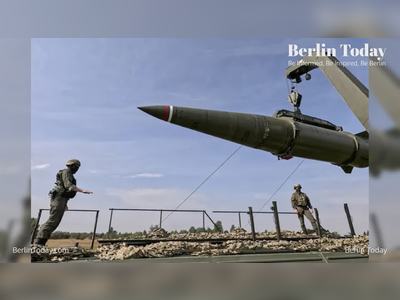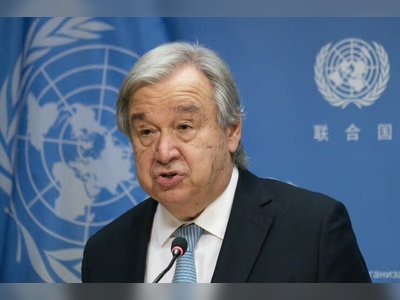A Web of Deceit: Far-Right Exploitation of the Magdeburg Christmas Market Attack
Aftermath of Tragic Event Marred by Misinformation and Manipulation on Social Media
In the chaotic digital aftermath of the recent attack on the Christmas market in Magdeburg, a torrent of misinformation has unleashed itself, sowing confusion and fear among the public.
This deluge, largely propagated by far-right groups, began almost immediately after the tragic event, illustrating a disturbing trend in the misuse of social media platforms for political gain.
The initial flurry of false claims depicted a coordinated assault involving five perpetrators, a planted bomb, and a death toll of 34.
These assertions, all now conclusively disproven by current investigative findings, highlight a cynical effort to weaponize tragedy.
Chief among those disseminating these baseless claims was Martin Sellner, a prominent Austrian far-right figure, who seized the opportunity to flood his Telegram channel with incendiary posts even before official reports emerged.
A particularly insidious falsehood involved assertions about the assailant’s identity, with Sellner and others falsely attributing the attack to a Syrian refugee associated with the 2015/16 asylum influx.
This narrative was eagerly picked up by international right-wing outlets, seeking to vilify both Islam and former Chancellor Angela Merkel’s immigration policies.
In reality, authorities have disclosed that the arrested suspect is a 50-year-old Saudi Arabian, resident in Germany since 2006, and having renounced Islam in the late 1990s.
This suspect, previously unknown to authorities as an Islamist, had political asylum status since 2016 due to his dissent against the Saudi monarchy, a fact conveniently omitted by the purveyors of misinformation.
His purported social media posts reveal a complex ideological stance with both anti-Islam and anti-Merkel sentiments.
False reports quickly expanded beyond exaggerations of motive and method to exaggeration of victim numbers.
Initial rumors inflated the death toll dramatically, with claims ranging from 11 to 34 casualties, contrasting sharply with the official count of five fatalities and approximately 200 injuries as of the latest police update.
This barrage of disinformation illustrates a broader tendency to exploit tragic events to amplify fear and division.
Beyond far-right actors, misinformation networks included anti-Israel groups suggesting the attack was a 'false flag' operation by Israeli intelligence.
Similarly, Turkish nationalist circles falsely implicated Kurdish militias.
The dissemination of a fabricated quote attributed to Germany’s President Steinmeier further exemplifies how quickly misinformation can take root.
The quote, designed to incite public outrage against perceived government leniency, originated from a satirical source but was widely shared as genuine.
Events like the Magdeburg attack underscore the persistent challenge of countering disinformation online, where crises often blur the line between fact and fiction.
It signals a need for the public and media to exercise heightened scrutiny over sources, particularly in moments of uncertainty.
Trusted news agencies and official channels remain vital for accurate reporting, as demonstrated once again in the grim lessons from Magdeburg’s ordeal.
This deluge, largely propagated by far-right groups, began almost immediately after the tragic event, illustrating a disturbing trend in the misuse of social media platforms for political gain.
The initial flurry of false claims depicted a coordinated assault involving five perpetrators, a planted bomb, and a death toll of 34.
These assertions, all now conclusively disproven by current investigative findings, highlight a cynical effort to weaponize tragedy.
Chief among those disseminating these baseless claims was Martin Sellner, a prominent Austrian far-right figure, who seized the opportunity to flood his Telegram channel with incendiary posts even before official reports emerged.
A particularly insidious falsehood involved assertions about the assailant’s identity, with Sellner and others falsely attributing the attack to a Syrian refugee associated with the 2015/16 asylum influx.
This narrative was eagerly picked up by international right-wing outlets, seeking to vilify both Islam and former Chancellor Angela Merkel’s immigration policies.
In reality, authorities have disclosed that the arrested suspect is a 50-year-old Saudi Arabian, resident in Germany since 2006, and having renounced Islam in the late 1990s.
This suspect, previously unknown to authorities as an Islamist, had political asylum status since 2016 due to his dissent against the Saudi monarchy, a fact conveniently omitted by the purveyors of misinformation.
His purported social media posts reveal a complex ideological stance with both anti-Islam and anti-Merkel sentiments.
False reports quickly expanded beyond exaggerations of motive and method to exaggeration of victim numbers.
Initial rumors inflated the death toll dramatically, with claims ranging from 11 to 34 casualties, contrasting sharply with the official count of five fatalities and approximately 200 injuries as of the latest police update.
This barrage of disinformation illustrates a broader tendency to exploit tragic events to amplify fear and division.
Beyond far-right actors, misinformation networks included anti-Israel groups suggesting the attack was a 'false flag' operation by Israeli intelligence.
Similarly, Turkish nationalist circles falsely implicated Kurdish militias.
The dissemination of a fabricated quote attributed to Germany’s President Steinmeier further exemplifies how quickly misinformation can take root.
The quote, designed to incite public outrage against perceived government leniency, originated from a satirical source but was widely shared as genuine.
Events like the Magdeburg attack underscore the persistent challenge of countering disinformation online, where crises often blur the line between fact and fiction.
It signals a need for the public and media to exercise heightened scrutiny over sources, particularly in moments of uncertainty.
Trusted news agencies and official channels remain vital for accurate reporting, as demonstrated once again in the grim lessons from Magdeburg’s ordeal.
Translation:
Translated by AI
AI Disclaimer: An advanced artificial intelligence (AI) system generated the content of this page on its own. This innovative technology conducts extensive research from a variety of reliable sources, performs rigorous fact-checking and verification, cleans up and balances biased or manipulated content, and presents a minimal factual summary that is just enough yet essential for you to function as an informed and educated citizen. Please keep in mind, however, that this system is an evolving technology, and as a result, the article may contain accidental inaccuracies or errors. We urge you to help us improve our site by reporting any inaccuracies you find using the "Contact Us" link at the bottom of this page. Your helpful feedback helps us improve our system and deliver more precise content. When you find an article of interest here, please look for the full and extensive coverage of this topic in traditional news sources, as they are written by professional journalists that we try to support, not replace. We appreciate your understanding and assistance.










